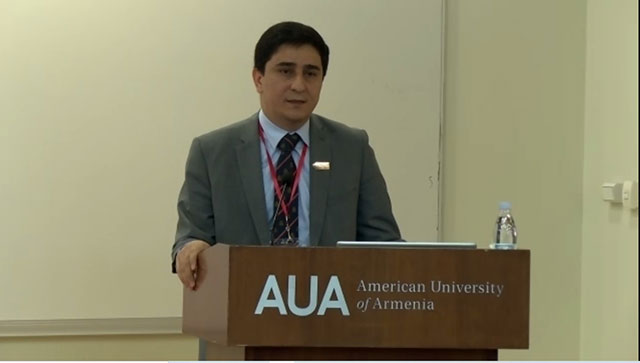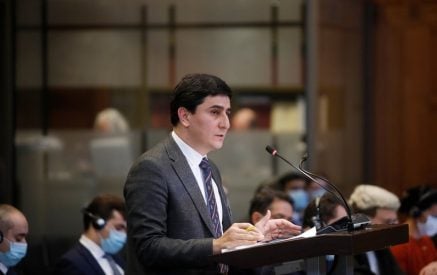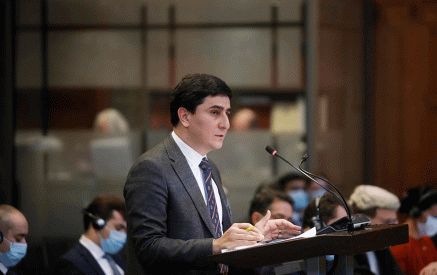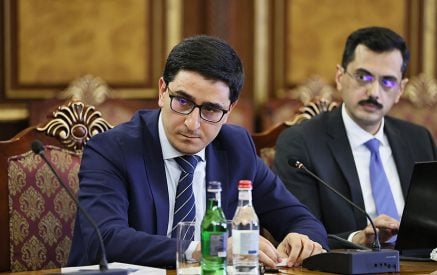“This was a drop in the ocean,” Yeghishe Kirakosyan, the representative of the Republic of Armenia in the European Court of Human Rights (ECHR), stated during the international conference on “Human Rights and Accountability: After the War” at the American University of Armenia, referring to the legal processes that are carried out in international courts, in the UN Court, and in the ECHR. Yeghishe Kirakosyan recalled that they were often told that all this might not work, but noted that they had taken that step because today’s international law and relations are changing radically.
Yeghishe Kirakosyan stated that for years Azerbaijan has been preparing the international community to justify the use of force. For example, they published texts and reports in which their territorial rights were presented and the Republic of Armenia was presented as an aggressor. These reports were presented by well-known scientists who have a say in the world. Regarding the fact that Azerbaijan does not recognize the presence of some Armenian prisoners of war in their country, and what means can we use in terms of returning those people, Yeghishe Kirakosyan answered, “It is a difficult question. We have used all possible tools of international organizations.
We asked the ECHR to demand repatriation, we knew that would not happen, as the scope of the interim measure is very narrow. This is done within the framework of the second and third articles. The problem is that the functions and mechanisms of the working groups are limited, they collect those applications and submit them to the government of Azerbaijan. I do not think it will differ from the answer submitted to the ECHR. We must continue to look for possible ways, we must apply political pressure. There is a legal toolkit that should guarantee the safety of people’s lives.” Yeghishe Kirakosyan also stated that the President of Azerbaijan Ilham Aliyev continues to use hate speech. Its manifestation is the working group set up by the Ministry of Culture of Azerbaijan, which works to erase the traces of Armenianness.
Read also
“We report all these facts to Azerbaijan, demanding clarification. Unfortunately, we have not received any explanation.” In response to the question about how the decision of the ECHR can be useful in the issue of returning the Armenian prisoners of war and holding Azerbaijan responsible, Yeghishe Kirakosyan answered, “We are in court at a very early stage, when Armenia has filed a discrimination lawsuit. There were massacres at the beginning of the 20th century, unfortunately, they were not so visible in the Soviet period, as they were isolated cases of an ethnic nature. Aliyev’s father was pursuing a policy of increasing the population of Azerbaijan, with the aim of reducing the number of Armenians.
And his son was already pursuing a policy of hatred; he institutionalized hatred. All these laws show deep racial hatred. That is the basis of the crimes. We saw beheadings during the 44-day war, which show that hatred. This means that Artsakh, which is inhabited by Armenians, can not be part of Azerbaijan, because it will actually mean ethnic cleansing. That is why this case is very important in that respect; it is directly connected with it.”
Tatev HARUTYUNYAN




























































